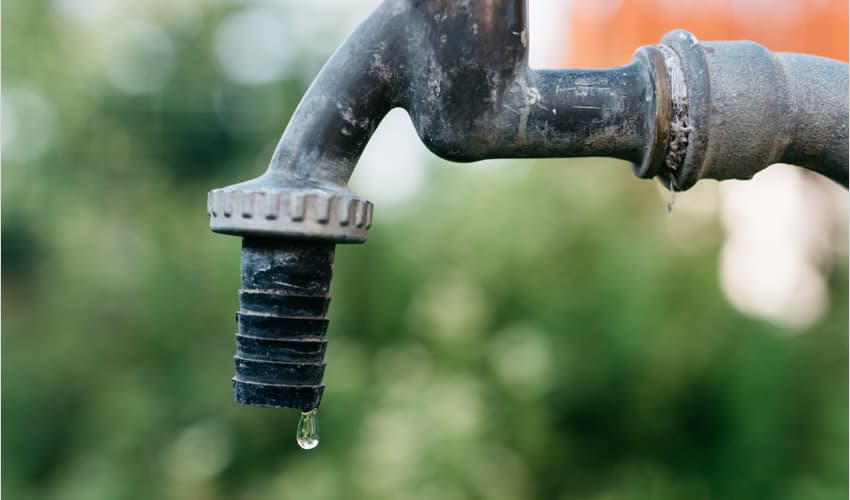The House's Common Typical Causes of Leakage: Detailed Examination
The House's Common Typical Causes of Leakage: Detailed Examination
Blog Article
Right here below you will discover a lot of outstanding news about How to detect water leaks in your home.

Leaks not only create waste of water but can likewise cause unneeded damage to your residence and advertise unwanted natural development. Regrettably, water leakages may go unnoticed since the majority of the pipework in our home is hidden. By understanding and looking for daily situations that trigger leaks, you can safeguard your home from future leakages as well as unnecessary damage. Today, we will consider six leakage triggers that may be creating your pipelines to drip.
Encroaching origins
Many water leakages start outside the house rather than inside it. You might discover damp patches or sinkholes in your yard, as well as that may indicate that tree origins are getting into water lines triggering water to seep out.
Corroded water supply
As time passes by, your plumbing system ages and rust such as rust may begin eating away the pipes. This may be the source of staining or bending on your water pipes. This asks for an examination with your plumber promptly. If our plumbing system is old, take into consideration replacing the pipelines considering that they are at a greater danger of corrosion than the more recent models.
Defective Pipe Joints
The factor at which your pipelines connect is often the weakest web link in the waterline. Pipeline joints can wear away with time, leading to water leaks. The majority of pipeline joints are not quickly visible. If you have noisy pipes that make ticking or banging sounds, particularly when the warm water is activated, your pipeline joints are most likely under a lot of stress. It is advisable to have your plumber evaluate your system annually.
Immediate temperature level changes.
Severe temperature changes in our pipelines can cause them to broaden and also contract suddenly. This growth and also tightening may trigger fractures in the pipes, specifically if the temperature level are listed below freezing.
Poor Water Connectors
At times, a leakage can be caused by loose pipes and pipes that provide your appliances. In case of a water connections leak, you might notice water running directly from the supply line or pools around your appliances.
Clogged Drains
Obstructed drains pipes could be annoying and also inconveniencing, but they can often end up triggering an overflow leading to rupture pipes. Maintain removing any kind of products that might decrease your drains pipes that could obstruct them to prevent such inconveniences.
All the above are root causes of leakages however not all water leaks result from plumbing leaks; some leaks might originate from roofing system leakages. All leaks should be fixed instantly to prevent water damage.
Leakages not just cause waste of water however can likewise trigger unneeded damages to your residence and promote undesirable organic growth. By recognizing as well as looking for daily situations that create leaks, you can shield your house from future leaks and also unneeded damage. Today, we will certainly look at six leak creates that might be triggering your pipes to trickle.
At times, a leak can be created by loose hoses and pipes that supply your devices. In situation of a water connections leak, you may see water running directly from the supply line or pools around your home appliances.
How To Check For Water Leak In Your Home
How To Check for Leaks
The average household's leaks can account for nearly 10,000 gallons of water wasted every year and ten percent of homes have leaks that waste 90 gallons or more per day. Common types of leaks found in the home are worn toilet flappers, dripping faucets, and other leaking valves. These types of leaks are often easy to fix, requiring only a few tools and hardware that can pay for themselves in water savings. Fixing easily corrected household water leaks can save homeowners about 10 percent on their water bills.
To check for leaks in your home, you first need to determine whether you're wasting water and then identify the source of the leak. Here are some tips for finding leaks:
Take a look at your water usage during a colder month, such as January or February. If a family of four exceeds 12,000 gallons per month, there are serious leaks.
Check your water meter before and after a two-hour period when no water is being used. If the meter changes at all, you probably have a leak.
Identify toilet leaks by placing a drop of food coloring in the toilet tank. If any color shows up in the bowl after 10 minutes, you have a leak. (Be sure to flush immediately after the experiment to avoid staining the tank.)
Examine faucet gaskets and pipe fittings for any water on the outside of the pipe to check for surface leaks.
Undetected water leaks can happen without the home or business owner even realizing. If you suspect a water leak, but not able to find the source. It is time to contact a professional water leak detection service, The Leak Doctor.
How To Find a Water Leak In Your Home
https://www.leakdoctor.com/blog/How-To-Check-For-Water-Leak-In-Your-Home_AE197.html

As an avid person who reads on Common Water Leaks In House, I thought sharing that piece of content was a great idea. Are you aware of anybody else who is in to the niche? Do not hesitate to share it. Bless you for your time. Don't forget to check our blog back soon.
Need urgent help? Reach. Report this page